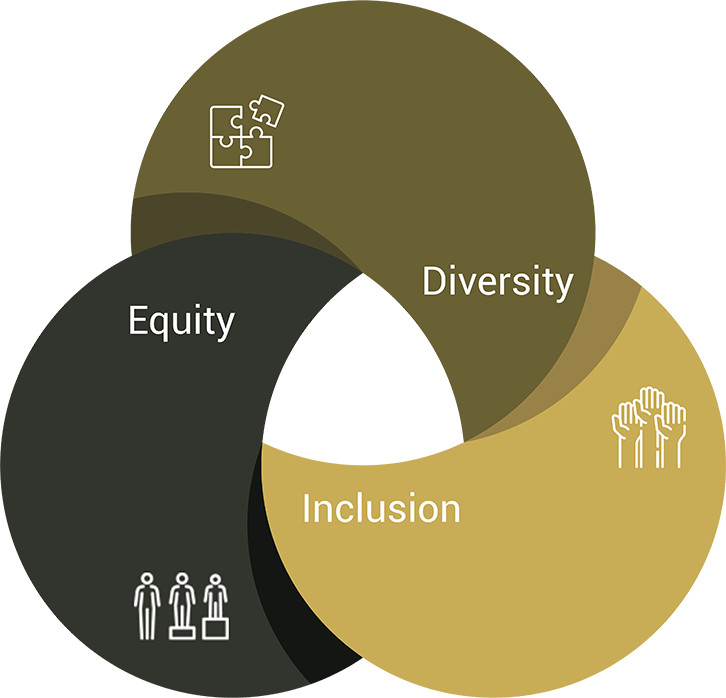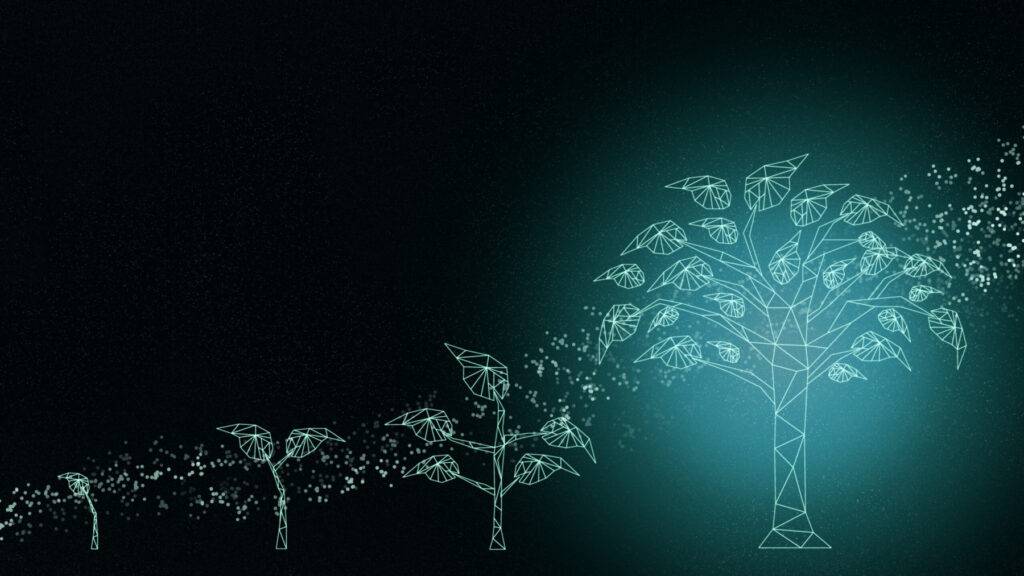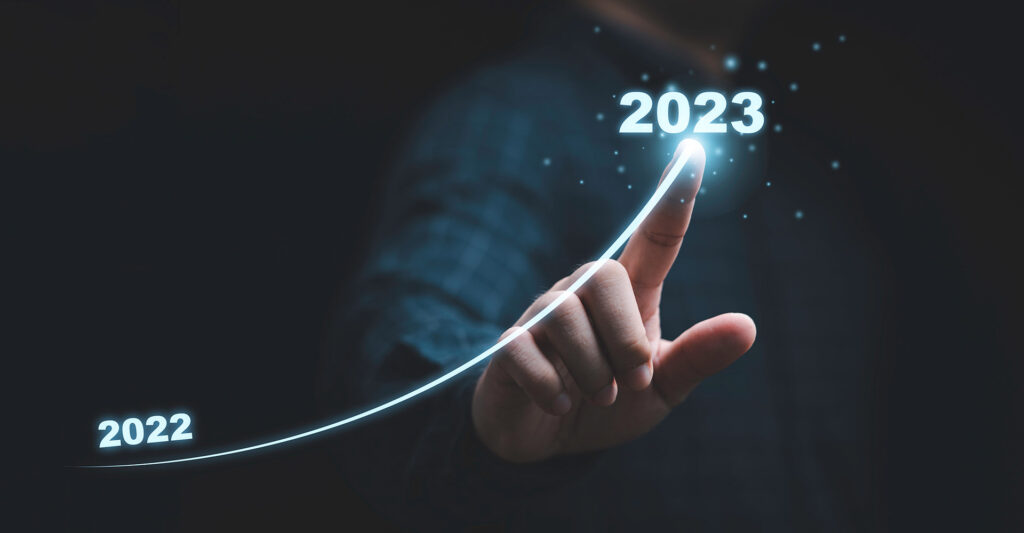We understand deeply the importance of creating a sense of belonging and what it means to develop an equitable, just society. In our firm, diversity equity and inclusion aren’t buzzwords, but rather a root word that applies a deep lens of systemic belonging to all of our work. We understand the visible and invisible effects of barriers, and what it takes to overcome them in today’s organizations.
Organizational Belonging: Diversity, Equity, & Inclusion
Enhancing organizational values towards equity, then turning those values into action.
DEI as ESG and CSR criteria
In today’s landscape of corporate performance and reporting, your ESG (environmental, social, and governance) approach is a critical strategic tool that tells your customers, staff, investors, and stakeholders how you are making a sustainable difference in today’s society. Not only does this influence purchasing and investment decisions, but it influences the sense of belonging that your staff, customers, and investors experience when they interact with your brand. While the E in ESG (environmental) reporting has objective and widely agreed upon factors, the S in ESG (social) reporting requires a great level of insight, forward thinking, and understanding of various levels of belonging across intersectionalities. This understanding benefits from action-based frameworks that communicate to all of your company’s relationships that your organization not only has genuine values, but actively seeks to turn your values into action in such a way that demonstrably benefits society.
The DEI journey
Our first step together is in identifying where your organization is today in its diversity, equity, and inclusion (DEI) journey compared to where your employees and stakeholders want it to be. Companies often come to us saying they want to begin or do better in their DEI efforts and need to take action now. They also want their efforts to be comprehensive, sustainable through any leadership changes in their organizations, and continuously improving.
Our comprehensive approach builds ESG and CSR underpinnings into the four perspectives of the traditional balanced scorecard—Financial, Customer, Internal Process, and Learning and Growth—to ensure DEI is reflected in all of your efforts and activities; from your corporate business strategy down through to the details in your brand guidelines.
Morant McLeod uses continuously evolving industry best practices to measure where you are today and develop your MM Modified Balanced Scorecard to include your equity and inclusion scores and guide you through our evaluative process to identify areas of strength and weakness.
Our approach ensures that diversity, equity, and inclusion are at the forefront of your organization’s objectives and that your efforts are not undertaken out of a sense of compliance, but one of commitment. Our methodology includes an assessment of leadership, that there is process transparency, and that there is clarity in recruiting, promoting, and succession planning policies and procedures.
We amplify the voices of those who are wielding small amounts of power in your organization. We augment their backgrounds and concerns so that their small measure of equity has just as much effect in their lives as anyone else’s regardless of position and power.
Action vs analysis. Analyzing the organization and your current industry landscape is important for the ongoing growth of your DEI efforts. However, metrics change over time, and without ongoing action, the feedback required to react and improve continuously isn’t realized fast enough.
When it comes to making decisions and moving forward with DEI efforts, leaders and managers often find themselves stuck in analysis, paralyzed for fear of missteps, unintended exclusions, or for simply not doing enough. In many cases, leadership may find it difficult to leave analysis and move forward, while employees and other constituents are expecting or demanding action. Companies are often at different places and stages when it comes to moving along their DEI analysis-action continuum, generally behind where they’d like to be.
We find the right balance of analysis and action for your organization, which looks different for each organization. Whether you’re ready to jump directly to action through agile sprints, or require additional study, we help you log immediate DEI improvements and noticeably address the voices of your constituents who are anticipating results. Each action step along the analysis-action continuum must include listening to your employees, your contractors and suppliers, your customers, and your community for their feedback to help improve your efforts continuously.
Representation and belonging are some of the long-term benefits we help you achieve. For every organization, it’s important that all group identities feel a sense of belonging in the workplace. While common organizational endeavors such as public statements and anti-discrimination policies are good places to start, internal programs such as mentorship, network fostering, and ally development are key to making a difference in the lives of your employees, customers, and your industry.
Organizational transformation
Transforming your organization to reach your DEI goals should be an ongoing pursuit just as with your other continuous improvement programs such as technology advancement or product refinement. We approach DEI work as a permanent transformation of your organization.
Creating diversity, equity, and inclusion in the workplace functions best when the organization sprints to the first milestone and continuously grows to ensure that marginalized and underrepresented individuals are heard and they can see that change is taking place and is an ongoing effort.
It’s no longer enough to remain neutral. For DEI to be meaningful and impactful, you must intend to alter your corporate culture from one of tolerance and passivity to an entity that is actively intolerant of discrimination and exclusion. Neutral organizations that make public statements yet fail to transform the root causes of bias and discrimination simply perpetuate any existing internal injustices.
You need to be actively and continuously improving against discrimination and exclusion if you want to give the marginalized voices among your employees and constituents the same level of amplification and inclusivity as every other voice.
Safe spaces allow people to freely express themselves without fear of prejudice, uninvited opinions, or negative judgments. Some identities within your company may have already created their own safe space in small pockets and are not invited to participate and share their reality with others. In your transformation to a DEI organization, you need to provide a physically and emotionally safe environment where people can come together to express themselves freely and communicate their experiences without feeling sidelined or minimized in voice and value.
We create intentional safe spaces that allow marginalized people to feel supported and respected. We work with your internal groups to develop and enlighten a culture of inclusiveness across the entire organization. Your ultimate DEI goal is to make your entire enterprise a safe space where identities can share their realities with others; discover and identify with other groups; and develop a greater understanding and valuing of each other’s humanity.
Morant McLeod’s Mutual Learning Framework is designed to make your organization not just a safe space but a mutual learning space. Our practice in this area centers on two guiding principles: we recognize and respect that each of us sees things that others do not; and that our differences are opportunities for learning. In our Framework, leadership excellence includes curiosity, empathy, and transparency. The ultimate goal is trust and the creating a sense of belonging by valuing the perspectives of all team members and leaning into inclusion.
Belonging
We view diversity, equity, and inclusion as a three-way intersection, where at its center lies belonging. When an organization builds a culture of diverse identities, equitable distributions of power, and inclusive perspectives from all individuals, it clearly promotes a culture of belonging. In these inclusive organizations, individuals develop a sense of “I’m supposed to be here.” Their places of work engages with them and values their contributions in such a way that their intrinsic motivations drive them to give more, do more, and be more of themselves.
Everyone feels a sense of being a part of the purpose of the organization and are inspired to pull in the same direction. A sense of “I belong here” rather than “I’m not appreciated” encourages genuine value regarding personal involvement at work.
Of primary importance to the strategic plan is having each of your employees engaged and invested, for your business efforts are most effective when the collective direction of your people becomes the engine that drives the corporate plan forward and enables the enterprise to achieve its purpose. When strategic plans are developed with belonging at it core and carried throughout the planning process, the teams that implement the strategic tasks are incented and involved and will deliver in new, innovative ways.
Representation is a critical part of belonging. If your employees don’t see their reflection in the faces and cultures of the leadership team, then confirmation bias and implicit bias tells them that your organization is not someplace where they can belong.

Being declarative in your intentions with public statements and implementation of anti-discrimination policies are good places to start making changes, but they’re not enough. For if these become the extent of your sign of commitment, you may be causing more harm than good. We will help you take meaningful action early on by designing and executing internal programs that can actually make a difference in people’s lives.
Making a difference in the lives of people will become your underlying philosophy and motivation to take yourself out of neutral and drive your DEI initiatives forward. You are intentionally looking out for the happiness and success of every person working in your organization.
You will also be making a difference in the lives of your customers who buy your products and believe in your brand. And you’ll be making a difference in the community in which you reside and represent as corporate citizen.
Let’s Discuss.
Our consultants are happy to lend ideas and approaches to support your decision making. Contact us today for a quick strategy session.

READ MORE OF OUR INSIGHTS & THOUGHT LEADERSHIP ON DIVERSITY, EQUITY, & INCLUSION
Filter
Want to hear more from us?
Receive ideas, innovative business approaches, and new study information directly to your inbox.




